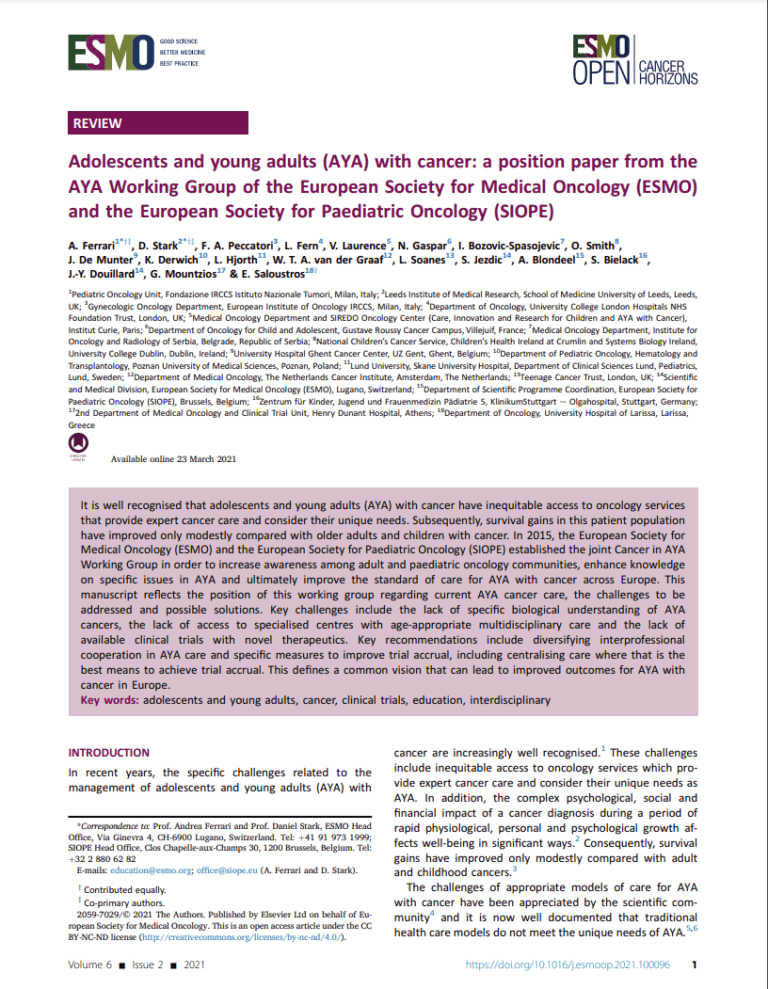
The aim of the guideline is to structure and standardize the transition from pediatric care to adult medical care facilities for chronically ill adolescents and young adults or those in follow-up care after a serious illness in a multidisciplinary manner.
This is intended to ensure continuous specialized medical care throughout the vulnerable life phase of adolescence and into young adulthood. Through good preparation from the onset of puberty at the latest, adolescents with somatic diseases should also acquire the ability to manage their disease independently. This should reduce morbidity and mortality in adulthood and improve quality of life and social participation. Thus, a successful transition is not only important for young patients and their families but also relevant in terms of health economics.
This guideline is intended to help ensure that transition services are a regular part of health care for chronically ill adolescents and young adults and are securely funded by payers. Adolescents in follow-up care after a serious illness, such as after a haematological or oncological disease or after an organ transplant, are not formally chronically ill and often do not experience themselves as such. Nevertheless, regular multidisciplinary follow-up is important.
The guideline provides 18 recommendations, based on the results of a systematic search of scientific literature and a consensus process of relevant professional societies as well as patient representatives. For each recommendation, the underlying evidence, the strength of the recommendation as well as the consensus found is presented.









Comments
Thank you. Comment sent for approval.
Something is wrong, try again later